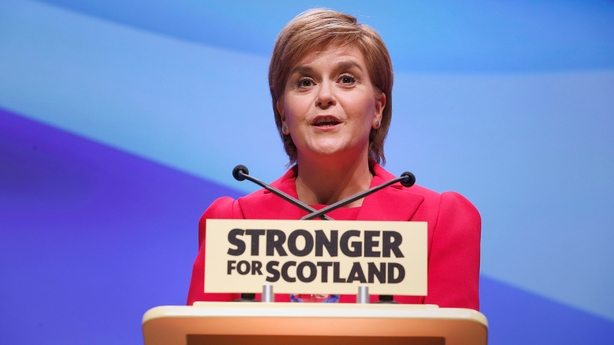Smooth negotiations on Britain's exit from the European Union are a prerequisite for a good future relationship between London and the bloc, the EU's chief Brexit negotiator said this afternoon.
"Agreement on orderly exit is prerequisite for future partnership. My priority is to get the right deal for EU27," Michel Barnier tweeted after British Prime Minister Theresa May laid out more detail on plans to leave the 28-state union.
He said he was ready to start negotiations, something Ms May has said she will do by late March by giving Brussels formal notice of Britain's intention to quit: "Ready as soon as UK is," Mr Barnier said. "Only notification can kick off negotiations."
European Union Council President Donald Tusk said on Twitter that Ms May’s speech was "at least more realistic", adding that the 27 other EU member states remained united and ready to negotiate.
"Sad process, surrealistic times but at least more realistic announcement on Brexit," Mr Tusk, who will oversee the negotiations on behalf of the other member states, tweeted.
"EU27 united and ready to negotiate after Art. 50," he added.
Mr Tusk spoke to German Chancellor Angela Merkel and French President Francois Hollande this afternoon, a spokesman said, and had a phone call scheduled with Ms May at 4pm.
European Parliament Brexit negotiator Guy Verhofstadt said it was an "illusion" to think that Britain could enjoy the advantages of the European Union's single market without accepting the obligations that come with it.
He said the EU would not accept a Brexit deal that would leave Britain better off than a full membership of the bloc.
Britain has chosen a hard Brexit. May's clarity is welcome—but the days of UK cherry-picking and Europe a la cart are over.
— Guy Verhofstadt (@GuyVerhofstadt) January 17, 2017
Germany's foreign minister earlier welcomed the "little bit more clarity" Ms May provided on what kind of Brexit Britain wants and said it was good she made clear she wanted to work constructively with the European Union.
"She emphasised that Great Britain is seeking a positive and constructive partnership, friendship with a strong European Union. That's good," Frank-Walter Steinmeier said in a statement after a speech in which Ms May laid out her Brexit priorities.
Mr Steinmeier said Germany also wanted the closest and most trusting relations possible with Britain but reiterated that negotiations could only begin once the British government has invoked Article 50 to start the divorce talks.
"It's in the interests of Germany and Europe to strengthen the cohesion of the European Union of 27 members and to protect the unity of the European Single Market," Mr Steinmeier said.
The Czech Secretary of State for EU Affairs was less positive however, saying the plan seemed "ambitious".
UK's plan seems a bit ambitious - trade as free as possible, full control on immigration...where is the give for all the take?
— Tomas Prouza (@CZSecStateEU) January 17, 2017
Former Swedish prime minister Carl Bildt said: "I regret the approach the UK government has taken. I think most of the EU would have preferred a closer relationship with the UK.
"Theresa May speech indicates that UK is seeking something slightly less than the Ukraine DCFTA (Deep and Comprehensive Free Trade Agreement) agreement with the EU. A retreat from Europe."
 Meanwhile, Scottish First Minister Nicola Sturgeon has said the British government's plan for leaving the European Union is "economically catastrophic" and Scotland must have the option of voting for independence if its views on Brexit are rejected.
Meanwhile, Scottish First Minister Nicola Sturgeon has said the British government's plan for leaving the European Union is "economically catastrophic" and Scotland must have the option of voting for independence if its views on Brexit are rejected.
Ms Sturgeon, who leads the pro-independence devolved government, said Scots, who voted by a clear majority against leaving the EU in last June's referendum, were now more likely to want independence.
She has submitted a series of proposals on Scotland's position to the UK government, including the option of Scotland maintaining its EU single market links from within the UK.

